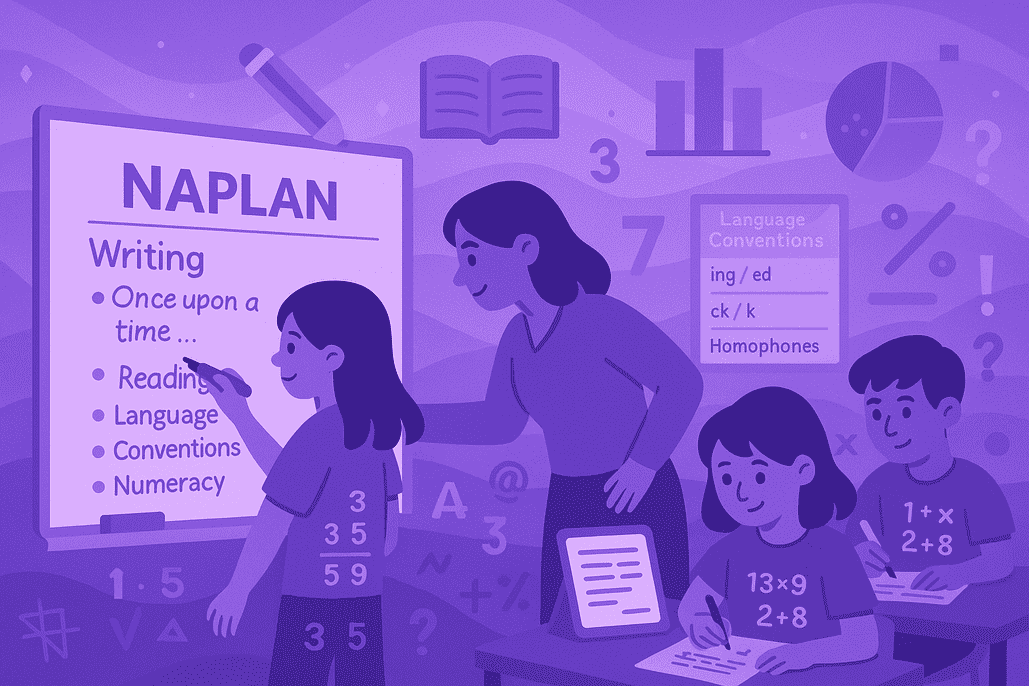For students acrossAustralia, the EduTest Scholarship Test can be a gateway to life-changing opportunities. Independent and private schools use EduTest to identify high-achieving students for scholarships and selective entry programs.Achieving a strong result can open doors to advanced learning pathways, financial support, and placements in top schools.
EduTest assesses a range of academic skills that go beyond standard classroom testing. Success requires a combination of strategy, skill development, familiarity with the test format, and consistent practice. This comprehensive guide outlines what the EduTestScholarship Test entails, how to prepare effectively, and how targeted resources, such as NotesEdu, can support structured preparation.
Understanding the EduTest Scholarship Test
The EduTest Scholarship Testis designed and administered by EduTest, an Australian company that provides scholarship and entrance assessments for schools. Independent schools widely use it to assess students from Years 3 to 12 and to identify those with strong academic potential.
Purpose and Skills Assessed
EduTest evaluates a student’s ability in several key areas:
- Reading Comprehension – Understanding, interpreting, and evaluating written passages.
- Mathematical Reasoning – Applying logical and quantitative thinking to unfamiliar problems.
- Written Expression – Structuring and presenting ideas clearly under time pressure.
- Abstract Reasoning – Recognising patterns and solving non-verbal problems.
Unlike standard classroom tests, EduTest focuses on higher-order thinking and reasoning. Questions are often unfamiliar, requiring students to apply knowledge flexibly rather than recall memorised content.
Format and Timing
The test is strictly timed, with multiple subtests designed to place students under moderate pressure. The difficulty and length of each section increase with the intended year of entry.For example, Year 9–10 applicants typically face longer reading passages and more complex mathematics than younger students.
Understanding the structure and expectations of EduTest is the first step in adequate preparation. Students who are familiar with question types and timing are better equipped to approach the exam strategically.
Strategic Preparation: Building a Strong Foundation
Creating a Study Plan
A well-organised study plan helps students cover each skill area systematically. Allocating regular, shorter study sessions several times a week is often more effective than holding occasional, longer sessions. Breaking preparation into focused areas such as vocabulary, reading, maths, and writing—helps avoid overwhelm and ensures balanced skill development.
Time Management and Consistency
EduTest’s timed format make spacing crucial. Students should practise under realistic time conditions to learn how to allocate their effort effectively. A regular schedule that includes time-bound practice sessions helps build stamina and reduce stress closer to the test date.
Identifying Strengths and Weaknesses
Early practice tests can help families identify which skills need more attention. For example, a student may excel in mathematical reasoning but struggle with written expression.Knowing this early allows for targeted improvement.
Developing Core Skills
Language and Vocabulary
A strong vocabulary underpins success in both reading comprehension and written expression.Students often encounter complex language and unfamiliar words. Gradual vocabulary expansion through reading, discussion, and structured exercises can make a significant difference.
The NotesEdu Language Vocabulary Course provides structured word lists, contextual practice, and comprehension exercises designed to strengthen students’ vocabulary systematically. This kind of targeted support complements wide reading at home.
Reading Comprehension
EduTest reading passages can be lengthy and complex, often requiring students to infer meaning, identify arguments, or evaluate perspectives. Regular reading practice and timed comprehension exercises build both speed and accuracy.
The NotesEdu Reading Comprehension Tests program offers realistic passages and detailed explanations. Timed modes help students develop strategies such as skimming for main ideas and scanning for specific details—skills that are crucial during the actual exam.
Mathematical and Abstract Reasoning
EduTest mathematical reasoning focuses on problem-solving, not rote memorisation. Reviewing number concepts, data interpretation, and logical reasoning helps build a solid base. Abstract reasoning questions often involve identifying patterns in sequences of shapes quickly.
The EduTestPlatinum and Year 9 and 10 Platinum courses by NotesEdu mirror the structure and complexity of actual EduTest sections. They include extensive question banks and timed practice environments, allowing students to build familiarity and accuracy over time.
Smart Practice Makes the Difference
Using Official and Realistic Questions
Familiarity withEduTest-style questions is critical. Official sample materials from EduTest provide a baseline understanding of format, while structured third-party programs offer broader practice coverage.
Timed Practice and Review
Practising under timed conditions helps students develop pacing strategies. After each practice session, reviewing errors carefully is essential. Identifying whether mistakes stem from misreading, rushing, or conceptual gaps allows students to address weaknesses directly.
NotesEdu’s courses include detailed solutions and performance analytics, helping students track their progress and refine their preparation strategically.
Managing Test Day Pressure
Handling Anxiety
It is common for students to feel anxious or nervous before an exam. Recognising signs of anxiety—such as negative self-talk, physical tension, or racing thoughts—allows families to address these early. Techniques such as controlled breathing, positive reinforcement, and mock test simulations can help reduce anxiety and increase confidence.
Staying Focused and Pacing
Students should read each question carefully, manage their time by answering easier questions first, and use educated guesses when unsure. Leaving questions blank unnecessarily can affect overall scores, so strategic decision-making is key.
Beyond the Test: Preparing for Interviews
Many scholarship programs include an interview stage after EduTest. This is an opportunity for students to demonstrate motivation, interests, and broader achievements. Preparation can help students articulate their thoughts clearly and confidently.
The NotesEdu Interview Course provides structured guidance on familiar themes, communication techniques, and mock interview practice. It can help students approach this stage with confidence and professionalism.
Common Mistakes to Avoid
Even capable students can fall into common traps during EduTest preparation:
- Procrastination and last-minute cramming – EduTest assesses skills built over time, not knowledge memorised in a week.
- Underestimating difficulty – The test is designed to challenge high-achieving students. Early, consistent preparation matters.
- Poor pacing – Spending too long on one question can leave easy marks behind.
- Not seeking help – If a concept is unclear, asking for support from teachers, tutors, or structured courses can make a difference.
Avoiding these pitfalls helps students focus their preparation effectively and build confidence steadily.
Real Success Stories
Real-life examples demonstrate how effective preparation can significantly transform outcomes.
A Year 6 student initially struggled with mathematical reasoning. By incorporating regular practice using structured materials and seeking help early, she improved her accuracy and speed. When the test day came, she felt confident and performed strongly, earning a scholarship offer.
A Year 8 student experienced test anxiety in earlier exams. He focused on building familiarity through timed practice and applied relaxation techniques on test day. This shift in approach helped him remain calm and focused, resulting in a significantly stronger performance.
Conclusion
The EduTest Scholarship Testis designed to identify high-ability students through reasoning, comprehension, and problem-solving under time pressure. Success depends on strategic, consistent, and well-targeted preparation.
Understanding the test structure, developing core skills, practising under realistic conditions, and managing test day pressure can significantly improve a student’s confidence and readiness.
Families can choose from a range of preparation approaches. Some rely solely on self-directed study, while others use structured programs such as those offered by NotesEdu, which provide realistic practice, targeted skill development, and data-driven feedback.
Disclaimer:
Preparation is not compulsory, and no preparation method can guarantee scholarship offers or specific outcomes. Success depends on each student’s individual abilities, effort, and performance on the day. NotesEdu is not affiliated with EduTest.
Starting early, maintainingbalance, and using reliable resources can help students approach EduTest withconfidence, giving them the best opportunity to demonstrate their abilities.
















